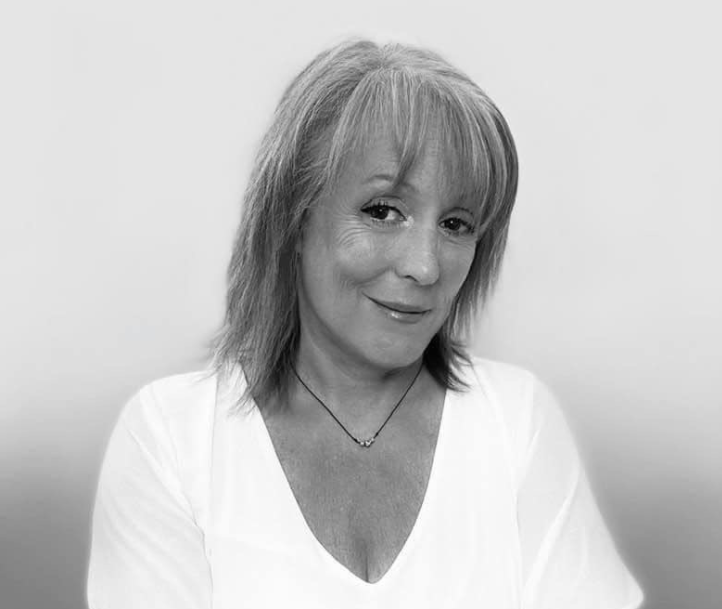Beth Vanstone has been fighting for years to get life-saving cystic fibrosis (CF) medications into the hands of Canadians.
It's a battle not only faced by the CF community, she says, but the entire country as the federal government struggles to obtain a steady flow of supply of the COVID-19 vaccine.
As CF Warrior Madi Vanstone's mom and an advocate for the CF Get Loud group, Vanstone says Canada's slow response to the vaccine rollout is not shocking considering the reputation Canada already has with big pharmaceutical companies, making it difficult for companies to get their products into the country at a fair price.
"Canada has done nothing but make an adversary out of big pharma," Vanstone said. "They have done nothing to cultivate a relationship, they don't invest in R&D (research and development) and don't encourage pharmaceutical companies to work here, develop here.
"The entire Canadian population is experiencing what rare disease patients have been experiencing for years," she added.
Prior to the pandemic, the federal government had been working toward lowering drug prices with the Patented Medicine Prices Review Board (PMPRB), or universal pharmacare.
The PMPRB was created in 1987 as a way to prevent price gouging by pharmaceutical companies by comparing prices in Canada to other countries. Canada has always been comparing their prices against wealthy countries, such as the U.S. and Switzerland, but recently switched to lower-cost countries like Australia in order to be able to afford the universal pharmacare system.
The PMPRB added stricter rules for pharmaceutical companies to have their drugs accepted into Canada. The changes were set to take effect this January, but have been pushed back to July 1, 2021.
Because the federal government is now at the mercy of big pharma when it comes to COVID vaccines, Vanstone believes the steps taken prior to the pandemic targeting big pharma have soured the relationship between drug-makers and Canada.
She hopes the pandemic will be a lesson for Canada and its relationship with pharmaceutical companies.
"(Canada wants) to have the least prices and the most complicated system in the world to get these drugs in and approved. Now the consequences are coming back to bite them," she said.
Vanstone has experience in working with both government and drug companies on rare-disease drug approvals. Seven years ago, her daughter Madi made headlines when she approached then-premier Kathleen Wynne and persuaded the Ontario government to approve coverage for her life-saving drug, Kalydeco.
Kalydeco is a drug that "fixes" a genetic deficiency in some CF patients. Madi was among the three to four per cent of sufferers who could benefit from the drug.
But without the coverage by OHIP, her family would have struggled with the $350,000 yearly cost of Kalydeco. Even with private insurance and participation in a drug study, the Vanstones were looking at a cost of about $60,000 per year.
The Vanstones are now advocates for the CF community and continue to fight for more life-saving medications that have yet to be approved in Canada for CF patients and others living with rare diseases.
There are approximately 4,300 CF patients in Canada. In December, CF Canada sent a letter to the provincial health ministers urging the provinces to include Canadians living with CF and their caregivers as a priority group as they roll out COVID vaccines.
Last month, CF Canada received confirmation from the Ontario government that those living with CF in Ontario will be prioritized in the second phase of the rollout, which is set to begin in March.
But Vanstone worries about the vaccine supply due to recent setbacks with shipments of the Pfizer-BioNTech and Moderna vaccines to Canada. According to the Canadian government website, as of Feb. 4, only 872,064 Canadians have received at least one dose of an approved COVID-19 vaccine, while 135,647 Canadians have received both required doses.
Canada is the only G7 country that is accepting vaccines from COVAX, led by the Wold Health Organization, a program designed to assist lower-income nations in purchasing the vaccines. Without domestic vaccine production, Canada is also at the mercy of other countries in obtaining all vaccines.
"This is Canada. We're not a Third World country," said Vanstone. "And this has happened because of government and the way they have formulated this horrible relationship with pharma.
"We deserve better than this. It is frustrating to see other countries getting ahead of the curve."
She hopes the pandemic will be a lesson for Canada to work on its relationship with pharmaceutical companies worldwide.
"Big pharma can't be so greedy, but the government also has to work with them and make the process a little smoother and make access wider," Vanstone said.



